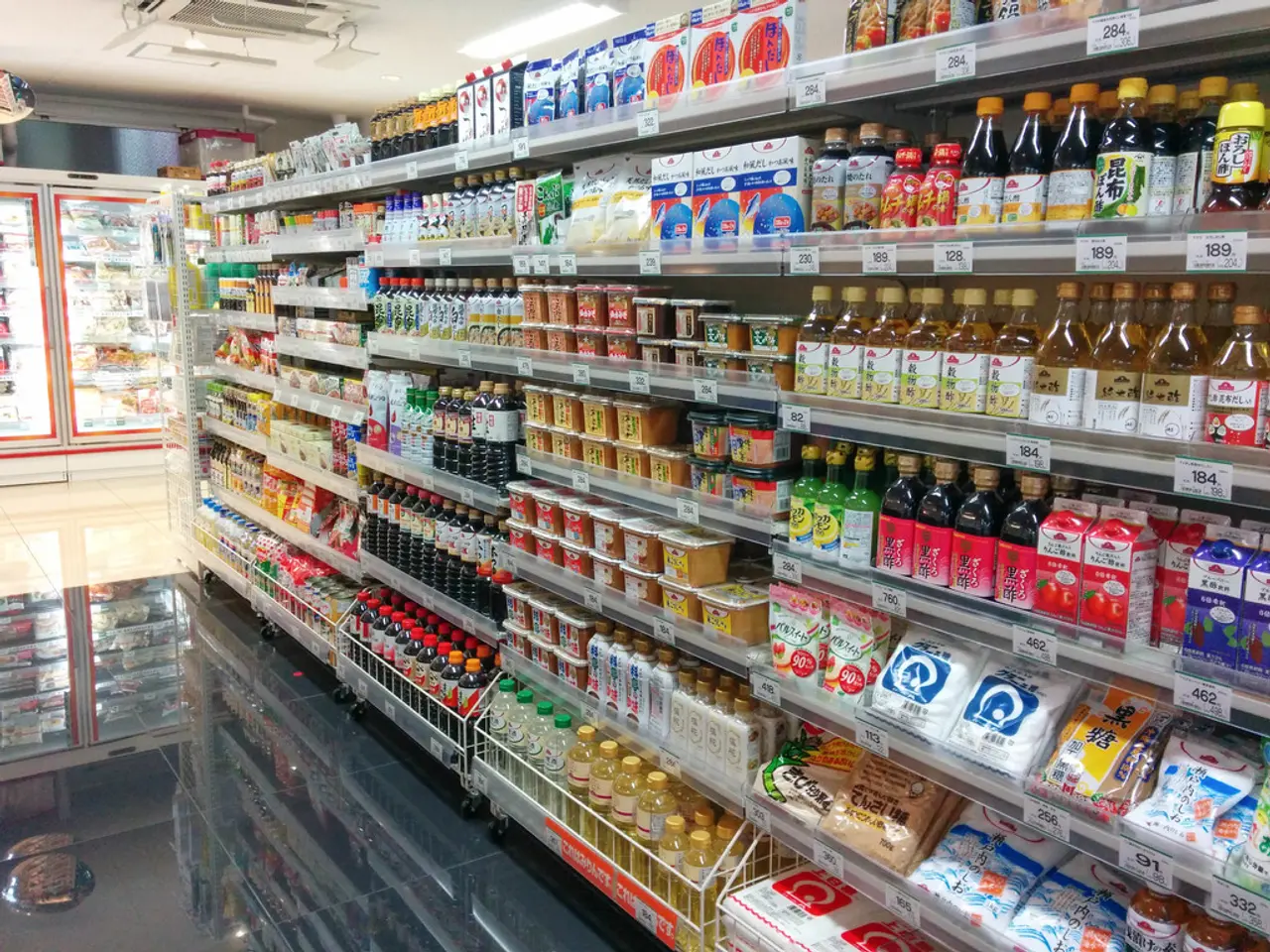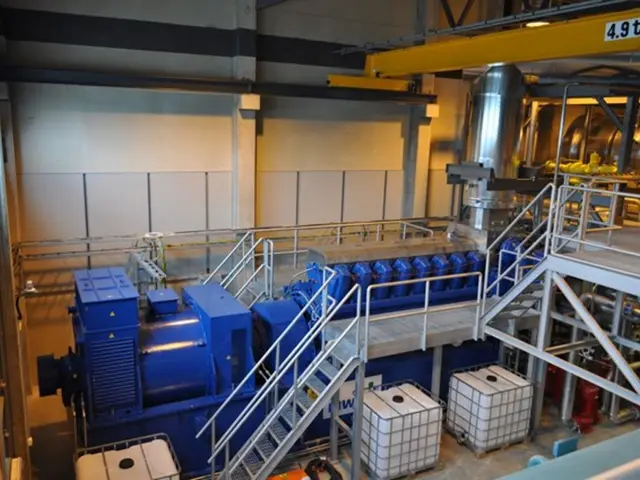Trump's Tariff Strategy: Potential Implications for the Cryptocurrency Sector
In an unexpected move, President Donald Trump signed an executive order imposing new tariffs on nearly all imported goods, effective August 7 [1]. This decision, which affects 68 countries, could have significant repercussions for the crypto market.
Canada, a key U.S. trading partner, saw its tariff rate rise from 25 to 35% on certain goods under the executive order [2]. The crypto market, which relies heavily on global cooperation and technology imports, might face increased friction due to this trade strategy [3].
The tariffs could impact the crypto market by introducing increased friction, particularly in the availability and cost of crypto mining hardware. Higher tariffs increase import costs for mining equipment, much of which is manufactured or contains components sourced internationally, especially from countries such as China [4]. This raises the price of mining rigs, thereby increasing the upfront capital expense for miners and potentially slowing mining operations or expansion.
The administration's focus on strengthening domestic manufacturing could shift where crypto-related hardware is produced, potentially increasing costs or slowing innovation in the short term. Chinese Bitcoin hardware giants are countering this by building U.S. factories to bypass tariffs [5].
The ripple effects extend beyond miners to crypto investors and service providers. Higher mining costs might translate into increased transaction fees or slower confirmations during periods of miner concentration or reduced capacity. Global supply chain disruptions caused by tariff-related trade tensions may lead to hardware shortages or increased lead times, adding further operational challenges to miners and hardware vendors.
The potential disruptions in global supply chains due to tariffs could affect the availability and price of technology critical to mining and transactions in the crypto market. For instance, tariffs on goods from countries like the Philippines, Vietnam, and Indonesia may increase costs for mining equipment and blockchain infrastructure components [4].
The tariffs reflect a broader strategy to protect American economic and national security interests by addressing imbalanced trade relationships. President Trump secured a 15% tariff rate in talks with the European Union, South Korea, and Japan [2]. Tentative deals with countries including the Philippines, Vietnam, and Indonesia have set their tariffs in the range of 19 to 20% [6].
However, the executive order maintains the administration's ongoing trade strategy, and President Trump has floated the idea of major tariff cuts, but Beijing has not shown interest in this proposal [7]. The escalating and country-specific tariffs under Trump’s 2025 policies impose a complex burden on crypto mining supply chains, increasing costs and uncertainties that could dampen mining activity and, by extension, impact the crypto market ecosystem [8].
It is crucial to note that this article is for informational purposes only and should not be construed as financial advice. Readers are encouraged to conduct their own research and consult with a qualified financial adviser before making any investment decisions.
[1] White House. (2020). Executive Order on Adjusting Tariffs Pursuant to Section 232 - Tariffs on Steel and Aluminum Imports. Retrieved from https://www.whitehouse.gov/presidential-actions/executive-order-adjusting-tariffs-pursuant-section-232-tariffs-steel-aluminum-imports/ [2] CNBC. (2020). Trump signs executive order to impose tariffs on nearly all imported goods. Retrieved from https://www.cnbc.com/2020/07/14/trump-signs-executive-order-to-impose-tariffs-on-nearly-all-imported-goods.html [3] CoinDesk. (2020). Trump's Tariffs Could Impact Crypto Market by Introducing Increased Friction. Retrieved from https://www.coindesk.com/trumps-tariffs-could-impact-crypto-market-by-introducing-increased-friction [4] Cointelegraph. (2020). Trump's Tariffs Could Raise Costs for Crypto Hardware Production and Distribution. Retrieved from https://cointelegraph.com/news/trumps-tariffs-could-raise-costs-for-crypto-hardware-production-and-distribution [5] CoinDesk. (2020). Chinese Bitcoin Hardware Giants Building U.S. Factories to Bypass Tariffs. Retrieved from https://www.coindesk.com/chinese-bitcoin-hardware-giants-building-us-factories-to-bypass-tariffs [6] CoinDesk. (2020). Trump's Tariff Policy and Its Impact on the Crypto Market. Retrieved from https://www.coindesk.com/trumps-tariff-policy-and-its-impact-on-the-crypto-market [7] CoinDesk. (2020). Trump Says He's Open to Tariff Cuts, but China Isn't Interested. Retrieved from https://www.coindesk.com/trump-says-hes-open-to-tariff-cuts-but-china-isnt-interested [8] Cointelegraph. (2020). Trump's Increased Tariffs Could Affect Crypto Market Ecosystem. Retrieved from https://cointelegraph.com/news/trumps-increased-tariffs-could-affect-crypto-market-ecosystem
- The unexpected rise in tariff rates for imported goods could potentially impact the cost and availability of blockchain-related hardware, specifically mining equipment, causing a slowdown in mining operations or expansion within the finance and business sector.
- The increasing focus on domestic manufacturing due to tariffs might shift the production of cryptocurrency hardware, potentially increasing costs or slowing innovation in the short term, particularly in the areas of general-news and politics.
- As the tariffs could affect the availability and price of technology crucial to mining and transactions in the crypto market, there might be significant repercussions for the security and stability of the market, which relies heavily on global cooperation and technology imports.




